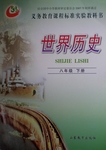题目内容
阅读理解
Visitors to London often eat in restaurants . The owners and workers in them are all from other countries. The visitors say in these restaurants they don't feel they are in England. Most of English people eat at home as much as they can. Sometimes they themselves will think they are in another country when they are in restaurants. When an Englishman goes out of a restaurant, he may find that he doesn't understand why everything is written in French and Italian.
Most of English people think it is better to eat at home, because it is cheaper. They don't want to spend much money on food and they like cooking at home. They like fast food. But for Christmas, they will spend two or three weeks to get ready for it, because they want to have good food.
1.Visitors to London often eat in restaurants because_________.
A. they don't like the food at home
B. their homes are not in London
C. it's cheaper
D. restaurants are beautiful places
2.When English people eat in restaurants , they sometimes think __________.
A. they are in another country
B. they are in the country
C. they are themselves
D. they love their country
3.Some of English people don't know __________.
A. why everything comes from French and Italian
B. why people write everything in French and Italian
C. everything in restaurants
D. everyone in restaurants
4.English people eat at home because __________.
A. it is fast
B. the food is expensive at home
C. it is sometimes very cheap
D. the food is very cheap at home
5._____ English people will spend much time for Christmas .
A. In order to (为了)get more food
B. In order to have much food
C. In order to get good food
D. In order to have enough food
 探究与巩固河南科学技术出版社系列答案
探究与巩固河南科学技术出版社系列答案任务型阅读 阅读下面的短文,根据文中信息完成文后表格。每个空格只能填一个单词。
Mr. Green is our foreign(外国的) teacher. He is a good teacher. He often helps us a lot. And he is nice to every student. His lessons are very interesting. We usually have fun in his lessons. We all like him.
He is a tall and strong man. He says he is 40 years old, but he looks very young. He comes from New York. Now he lives in Nanjing with his family. He has a daughter. She is a pretty girl. And she studies in our school, too.
Mr. Green is very “in”. He can sing many English songs. We all like to listen to him sing. He also likes sports. He is in the school basketball team. Mr. Green likes reading.
We think we are lucky to have Mr Green to teach us.
请根据短文内容,完成表格,每空一词。
Name | Mr Green |
Job | A 1. |
Nationality(国籍) | 2. |
3. | 40 years old |
What he is like | Mr Green is tall and 4.. He looks 5. His 6.are very interesting and he likes to 7.his students. |
8. | Music, sports and reading |
Family | He has a pretty 9.. She 10.in our school. |

